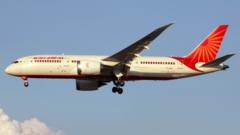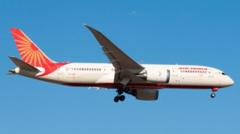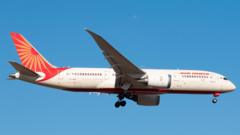Regulators in India and South Korea initiated inspections this week of fuel control switches on Boeing airplanes in light of a report concerning a fatal Air India crash. Singapore Airlines also announced that it has completed inspections of the switches on its Boeing aircraft.
The preliminary assessment published on Saturday found that during the unfortunate June incident involving Flight 171, the aircraft’s fuel supply was cut shortly after takeoff. The report suggested that mechanical failure or design flaws could be ruled out, instead zeroing in on the fuel switches of the Boeing 787 that crashed.
A particularly significant finding detailed that both fuel control switches had been turned off mere seconds after takeoff. Each switch is designed with a locking mechanism to avoid unintentional movement, leading experts to conjecture that human intervention was likely responsible for their operation.
In addition to the findings, the investigative report cited a 2018 advisory from the Federal Aviation Administration (FAA) recommending airlines utilizing Boeing models, including the 787, to inspect the switches’ locking features to ensure no accidental movement could occur. It was revealed that Air India had not performed the recommended inspections, as they were deemed non-mandatory, with the FAA not categorizing the locking mechanism concerns as sufficiently hazardous.





















